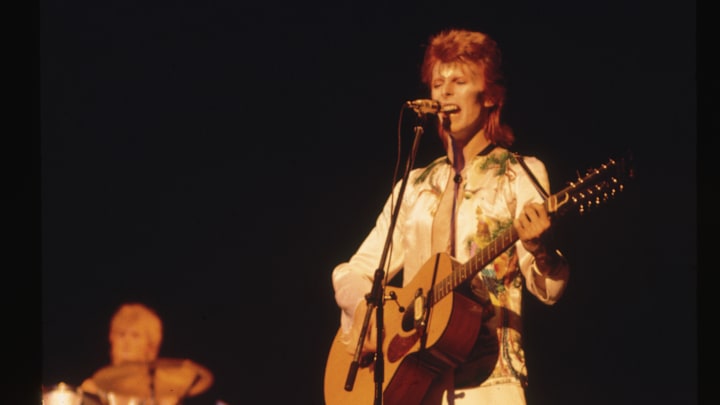“Walk On The Wild Side” - Session musician Herbie Flowers
Herbie Flowers is a stunning bass player on a whole host of records over the years. One of his most notable appearances is on this Lou Reed single from 1972. The song “Walk On The Wild Side” comes from Reed’s renowned Transformer album and is known for its highly distinctive bass line. Flowers’ work on the song is a real standout and a critical part of the song.
Flowers created a double bass line for the song. Not only was the style of that sound perfect for Reed’s song, but Flowers reckoned there was an additional bonus, too. Two bass lines counted as two instruments played for the track, meaning double the pay for the session. Although reports suggest he only received £17 for it, so it’s not clear if that ruse entirely paid off or not.
Flowers also featured on the top-selling “Rock On” hit by David Essex in 1973. That was another easily recognizable bass line on a record and very much a part of the song's style and success. It was another example of Flowers creating two bass lines to play. This time, he is said to have been paid £12 for each one. Clearly session musicians are very creative in more ways than one.
“Morning Has Broken” and “Life on Mars” - Session musician Rick Wakeman
Here’s a slight variation. At the time of these two records, Rick Wakeman was in the folk band The Strawbs and in the process of moving to join Yes. He had been playing as a session musician and featured spectacularly in that role on the two songs. Because they are such great sounds, I’ve wrapped them together here to count as just one.
Firstly, we have Cat Stevens’ 1971 recording of his single “Morning Has Broken." It was based on an old hymn and was quite short. So Wakeman was invited to adapt some music he was writing for a solo album, The Six Wives Of Henry VIII, and use a variation of that on Stevens’ song.
Wakeman has also attributed the song's producer, Paul Samwell-Smith, for a clever adaptation. Wakeman was asked not to play his piano all through the verses but to include some short flourishes and runs in those instead. It’s quite a contrast to the much fuller sound on the chorus and works brilliantly with Wakeman’s clever piano playing style.
During that same year, Wakeman featured as a session musician on several David Bowie tracks from the star's Hunky Dory album. “Life On Mars” is the most well-known example of Wakeman’s work for Bowie. I could have added in several other Bowie songs here, or the T-Rex classic “Get It On” which also featured Wakeman in his session role. On “Morning Has Broken” and “Life On Mars,” there is already plenty of superb, distinctive, and memorable playing by Wakeman, which helps make them both work so well.
Continued on next page
